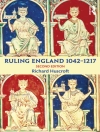The historiography of modern India is largely a pageant of presumed virtues: harmonious territorial unity, religious impartiality, the miraculous survival of electoral norms in the world’s most populous democracy. Even critics of injustices within Indian society still underwrite such claims. But how well does the ‘Idea of India’ correspond to the realities of the Union?
In an iconoclastic intervention, Marxist historian Perry Anderson provides an unforgettable reading of the Subcontinent’s passage through Independence and the catastrophe of Partition, the idiosyncratic and corrosive vanities of Gandhi and Nehru, and the close interrelationship of Indian democracy and caste inequality.
The
Indian Ideology caused uproar on first publication in 2012, not least for breaking with euphemisms for Delhi’s occupation of Kashmir. This new, expanded edition includes the author’s reply to his critics, an interview with the late Praful Bidwai of the Indian weekly
Outlook, and a postscript on India under the rule of Narendra Modi. Anderson considers whether his regime is as much of a break with the practices and thought processes of Congress rule as is generally supposed.
Sobre el autor
Perry Anderson is the author of, among other books, Spectrum, Lineages of the Absolutist State, Passages from Antiquity to Feudalism, Considerations on Western Marxism, English Questions, The Origins of Postmodernity, and The New Old World. He teaches history at UCLA and is on the editorial board of New Left Review.












